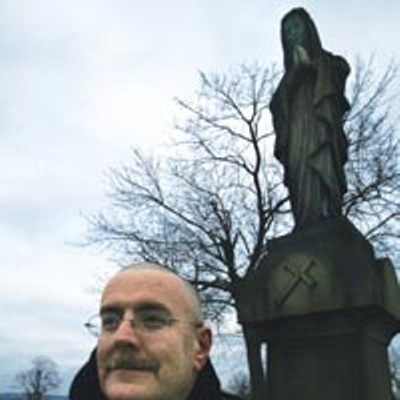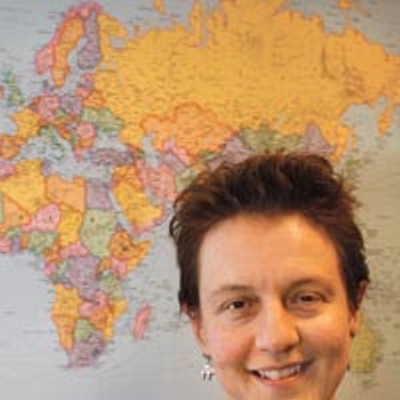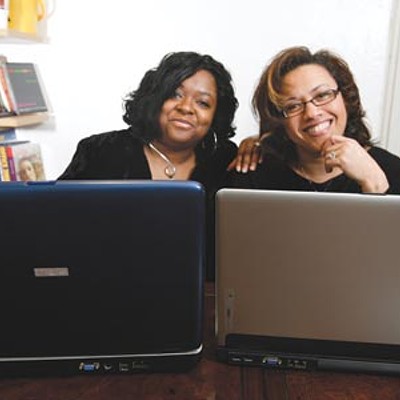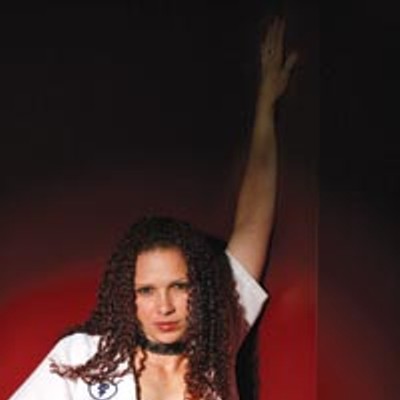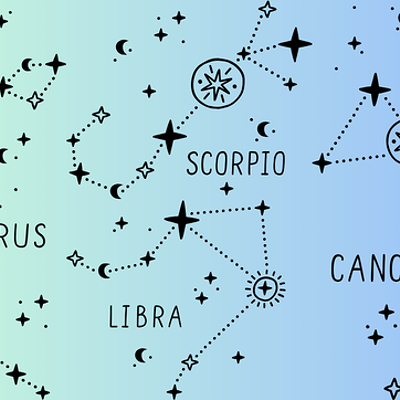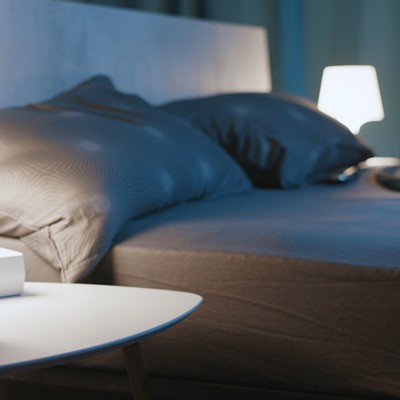You were interested in this issue since you met?
Mandi: We were always talking about how difficult it is to find union-made clothing. The advent of the Internet made it a little bit easier, but it's still so hard to find. So Eric and I became this resource for our friends, who were like-minded people who wanted to shop and buy their clothes in the same way we did, and not buy sweatshop clothes.
Who makes them?
Eric: We deal with a lot of factories in Pennsylvania, and we're getting more and more of our products from those factories.
Mandi: And this factory, Scotty's Fashions in Penn Argyl, Pa., they're really great. They've got a good union there. Neil Scott, the owner, is a customer of ours. He understands that if we succeed, then he'll be able to succeed as well.
Eric: Plains, Pa., is the Plains T-shirt company. If Plains T-shirt goes under -- obviously they're always threatened by it, with cheap imports and slave-made and child-made and sweatshop-made goods -- Plains, Pa., becomes one of those holes on the map. Deindustrialization, the apparel industry has been hit the hardest. Penn Argyl, where Scotty's is, in 1989 they had 3,000 employees, all working. Now they have about 400, most of whom are actually on rotating layoff.
Mandi: The first order we placed with Scotty's, which was right before the holiday season, kept six people from being laid off at Scotty's.
How do these guys stay afloat?
Eric: Almost all of the companies that we buy from, they're family-owned businesses that for the most part [the owners] work directly with the company. And [the owners] don't make $20 million a year. Plus, they don't advertise anything major. So they don't need 20 percent, 30 percent, 40 percent profit margins, like companies demand nowadays.
How do you know the clothes are "clean?"
Eric: I talk to union representatives from the locals, we talk to the internationals, to confirm not only that there's a contract, but that the company's in good standing. We've told most of the companies, "This is why we're doing this, so if we get a call and we find out that you're not negotiating a contract in good faith, or you've got a slew of grievances coming down the line, we will pull our orders."
How are your prices?
Eric: If you compare our products to the Gap, Hilfiger, Old Navy, those kind of shops, we're pretty much right on par.
Why isn't "Made in the USA" a sufficient standard?
Mandi: Oftentimes "Made in the USA" means made in a sweatshop in Los Angeles, made in a sweatshop in New York; it could mean made in the Mariana Islands, which is a United States protectorate. The Mariana Islands was the source of a lot of litigation, ultimately millions and millions of dollars were won by the workers on the Mariana Islands --
Eric: -- who were literally slaves.
Mandi: They were promised passage to the United States, a better life. They were told they were going to have to work off that passage. Then of course they get to the Mariana Islands, they have to work 18-hour days, they don't get any money.
How's business?
Mandi: Growing growing growing. Even since we've launched, six months ago, we've added a lot of new stuff. It's so encouraging to know that so many people want to shop this way.
Eric: Our customers very quickly become, I don't want to say friends, but you get really friendly, because it's not just someone who buys something from you. We're fellow travelers, we believe in the same thing. It's not just about buying clothes. It's about trying to do good and save people's jobs and stop these friggin' companies from stompin' all over people like they're ants or something, or less than that.
Are people surprised they can still find stuff that's sweatshop-free?
Eric: We get some of the nicest phone calls, e-mails and letters from people. "God bless you for doing what you're doing. I didn't even know I could do this any more." A lot of people cared about it and they just gave up. And there's huge things that work against what we're trying to do. Like Bob Dylan now sells stuff made by little girls in Thailand. He is now the spokesperson for one of the worst manufacturers in the world, Victoria's Secret. Bob Dylan.


